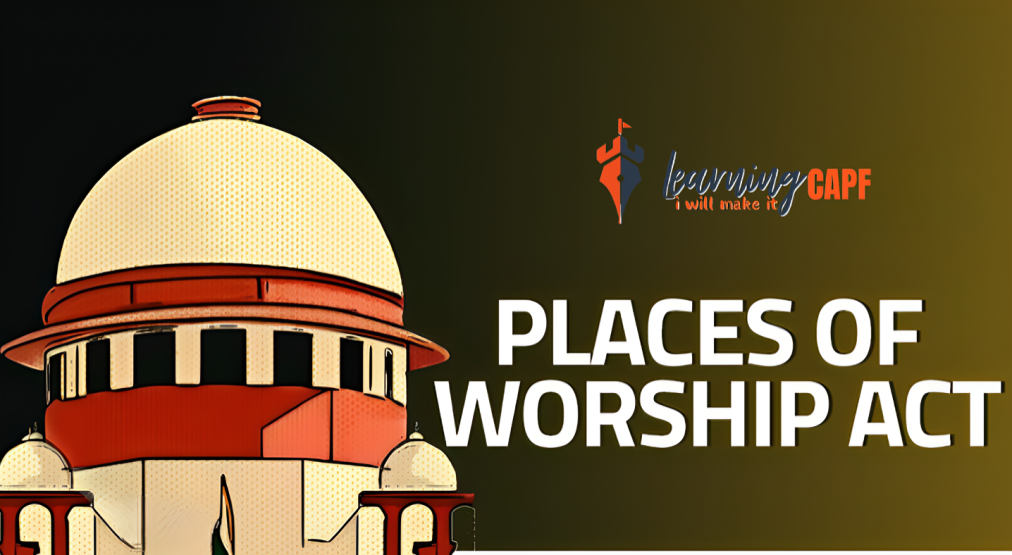Places Of Worship Act

A recent legal petition seeks to declare the Ajmer Sharif Dargah a Hindu temple, sparking debates over the Place of Worship Act. The petition questions the law’s prohibition on altering the religious character of sites, highlighting ongoing tensions over religious sites in India.
The Places of Worship (Special Provisions) Act, 1991 is a landmark law enacted to maintain the secular fabric of India. Amidst communal tensions following the Babri Masjid controversy, this Act was introduced by the government of Prime Minister P.V. Narasimha Rao. Its intent was to preserve the religious character of places of worship as they existed on August 15, 1947, preventing disputes that could ignite communal violence.
Background and Purpose
- The Act was introduced in 1991 to preserve the religious status quo of places of worship as they were on August 15, 1947.
- It aimed to prevent future religious conflicts arising from attempts to change the nature of places of worship.
- The law was also designed to promote peace, unity, and mutual respect among various religious communities by ensuring no changes in the religious character of sacred sites.
Key Provisions
- The Act mandates that the religious character of all places of worship, as they existed on August 15, 1947, must remain unchanged.
- No place of worship can be converted or altered to serve a different religious purpose, ensuring a permanent status quo.
- This prohibition is enforced to prevent any religious site from becoming a source of tension or dispute, fostering social cohesion.
Exceptions
- The Babri Masjid in Ayodhya is excluded from the Act due to its complex and long-standing legal and religious disputes.
- The legal exemption acknowledges the particular historical significance of the Babri Masjid, which was demolished in 1992, sparking national unrest.
- The case of Ayodhya became a focal point for religious and political debates, making it unique in the context of this legislation.
Legal Implications
- The Act prevents any court from entertaining legal cases related to the religious character of a place of worship filed after 1991.
- This provision ensures that disputes over religious places that have been settled or remain unresolved are not revisited, promoting legal finality.
- It also prevents the reopening of divisive issues, especially those with the potential to incite religious tensions, ensuring national stability.
Securing Religious Harmony
- By freezing the status of places of worship, the Act supports efforts to prevent future conflicts that could arise from disputes over religious sites.
- It serves as a proactive measure to maintain religious tolerance and peaceful cohabitation in a religiously diverse nation like India.
- The Act’s purpose is not just legal but symbolic, aiming to create an environment where religious sites are respected for their historical and spiritual significance.
Criticisms and Challenges
- Critics argue that the Act limits the ability of communities to seek legal redress for historical grievances related to religious places of worship.
- Some view the law as an impediment to justice, particularly for groups who feel their rights to religious places have been wrongfully taken.
- The Act is seen by some as a barrier to addressing unresolved issues from the past, where communities believe that their faith has been marginalized or disrespected.
Conclusion
The Place of Worship Act is a crucial tool for maintaining religious peace and preventing conflicts over religious sites in India. Despite its criticism, it plays a significant role in preserving the religious harmony and integrity of the country’s diverse communities. The Act, though controversial, seeks to uphold the pluralistic fabric of Indian society by ensuring respect for all religions and preventing alterations to the status of religious sites that existed as of 1947.
Practice Essay:
“The Place of Worship Act: Balancing Religious Harmony and Controversy in India“